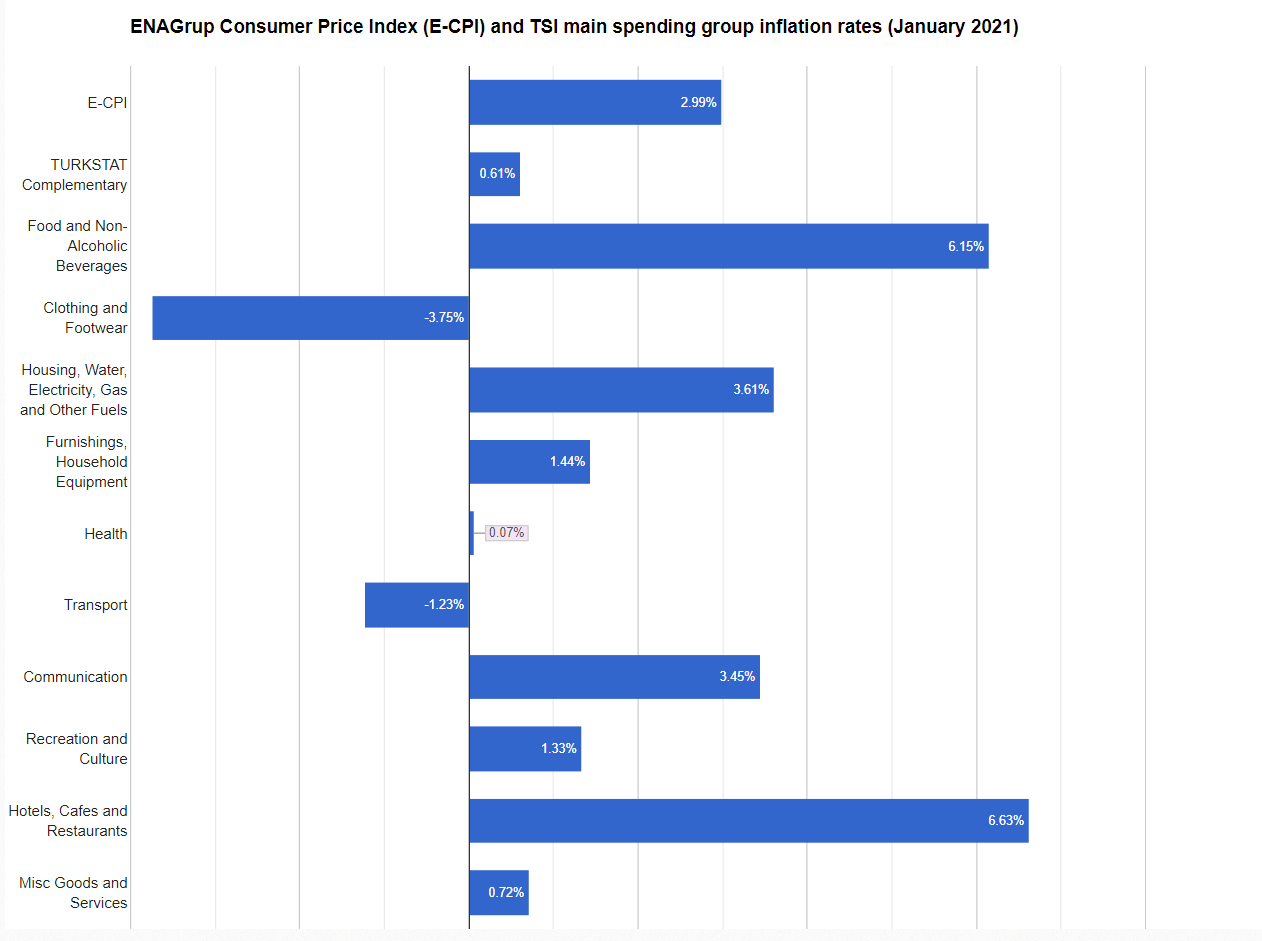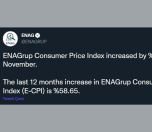Click to read the article in Turkish
The Inflation Research Group (ENAGrup), which monitors daily changes in the inflation rate, has released its "Pandemic Consumer Price Index" for January.
Accordingly, the inflation rate in the last month was 3.21 percent whereas the official rate announced by the Turkish Statistical Institute (TurkStat) was 1.68 percent.
December's inflation rate was measured at 3.15 by the ENAGrup and at 1.25 percent by the TurkStat.
The highest price increases in January were recorded in intercity bus and plane tickets, furniture and vegetable oil, according to the ENAGrup report.
"Since February 2020, the Covid-19 outbreak has radically changed consumer and investor behavior," says the report.
"The Statistical Office of European Union recommended to all office member countries to revise the product weights in the inflation basket.
"Within the scope of this proposal, the ENAGrup determined its
pandemic basket weights according to consumption trend, and calculated the relevant daily and monthly inflation rates using these weights."
"The probability of new waves of the Covid-19 outbreak indicates that price increases will continue.
"The main factors affecting inflation rates are naturally the effect of high exchange rate level and pass-through. On the other hand, we see that the prices, which increase rapidly while the exchange rate is rising, are not flexible when the exchange rate decreases."
According to inflation data, based on pandemic basket weight;
1. The highest increase is experienced in the Restaurants and Hotels group (6.78 percent)
2. We observe 5.81 percent and 3.52 percent inflation rates in Food and Non-alcoholic Beverages and Housing groups, respectively
3. It should be noted that the inflationary pressure in the Entertainment and Culture Product group, which includes products such as computers and tablets, has slightly decreased. The inflation rate of this group is 0.37 percent
4. The inflation of the basket, which we obtain as complementary products of TurkSt<t, which includes education, health and alcoholic beverages, was 0.93 percent. (HA/VK)









